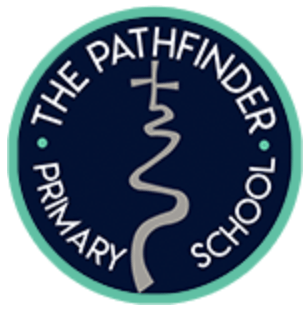
Computing
Computing
Within our computing curriculum we provide our children the opportunity to be independent thinkers and problem solvers of when and how they can use digital media in different aspects of their lives.
Children are able to use their prior knowledge to progress and to develop their enquiring minds to discover where computing can take them.
We give our children the opportunities to excel in digital literacy, computer science, information technology and online safety, enabling children to become confident, creative and independent learners.
In the ever changing digital world, our intention is to provide all children with not only the skills to use the technology that exists today, but the life long, thinking skills and passion to continue to develop their love of computing through secondary school and beyond.
Intent:
At The Pathfinder CofE Primary School, it is our intention to enable children to find, explore, analyse, exchange and present information.Technology is everywhere and will play a pivotal part in children’s lives. Therefore, we want to model and educate our children on how to use technology positively, responsibly and safely. Our broad curriculum encompasses computing, information technology and digital literacy. Computing skills are a major factor in enabling children to be confident, creative and independent learners and it is our intention that children have every opportunity available to allow them to achieve this.
Our aims:
- Use technology imaginatively and creatively to inspire and engage all children;
- Meets the requirements of the National Curriculum Programmes of Study for computing;
- Use computing as a tool to enhance learning throughout the curriculum;
- Equip children with skills, strategies and knowledge that will enable them to reap the benefits of the online world, whilst being able to minimise risk to themselves or others;
- Responds to new developments in technology;
- Equips pupils with the confidence and capability to use Computing throughout their later life;
- Enhances learning in other areas of the curriculum using computational skills;
- Develops the understanding of how to use computing safely and responsibly.
The National Curriculum for Computing aims to ensure that all pupils:
- Can understand and apply the fundamental principles of computer science, including logic, algorithms, data representation, and communication
- Can analyse problems in computational terms, and have repeated practical experience of writing computer programs in order to solve such problems
- Can evaluate and apply information technology, including new or unfamiliar technologies, analytically to solve problems.
- Are responsible, competent, confident and creative users of information and communication technology.
Implementation:
At The Pathfinder C of E Primary School, our scheme of work for Computing is adapted from the ‘Teach Computing’ Curriculum and covers all aspects of the National Curriculum. This scheme was chosen as it has been created by subject experts and based on the latest pedagogical research. It provides an innovative progression framework where computing content (concepts, knowledge, skills and objectives) has been organised into interconnected networks called learning graphs.
The curriculum aims to equip young people with the knowledge, skills and understanding the need to thrive in the digital world of today and the future. The curriculum can be broken down into 3 strands: computer science, information technology and digital literacy, with the aims of the curriculum reflecting this distinction.
In Key Stage 1, children have weekly computing lessons. They have access to a wide range of devices in order to enhance their learning.
Within Key Stage 2, computing lessons are taught as a block every half term. This enables children time to further explore and delve deeper into their learning, enabling them to ask those ‘big questions’.
In the Early Years the approach is through cross-curricular learning with an emphasis on hands on experiences and is assessed through the Understanding the World, Early Learning Goal. Teaching is through context-based and role play experiences using many resources such as i-pads and programmable toys.
Online Safety
The Pathfinder is fully committed to keeping all of our children safe. Learning about online safety happens through a range of subjects and approaches. We use 'Project Evolve' resourcing in line with the 'Education for a Connected World' strands and objectives.
We want our children to become digitally literate, critical, safe and responsible citizens to enable effective and enjoyable experiences in a digital world. We are fully committed to keeping all of our children safe and recognise that learning about online safety happens through a range of subjects and approaches. We recognise that online safety education is a whole school matter and goes well beyond the computing curriculum alone, therefore, our teaching of framework objectives will come in many forms, for example, through discrete online safety, PSHE or RHE lessons, as well as other curriculum areas, pastoral discussions when online safety matter arise, assemblies and special events. With this approach, it is our intention that pupils will build resilience and develop safe and appropriate behaviours online, which in turn will lead to positive online experiences.
Impact:
We encourage our children to enjoy and value the curriculum we deliver. We aim to ask WHY behind their learning, as well as ‘HOW’. We want children to discuss, reflect and appreciate the impact computing has had on their learning journey.
The children showcase their work in a number of ways and look for evidence through reviewing children’s knowledge and skills digitally and observing learning regularly.
The progress of our computing curriculum is demonstrated through outcomes and the record of coverage in the process of achieving these outcomes.
The Subject Leader is responsible for monitoring the standard of the children’s work and the quality of teaching in line with the schools monitoring cycle. This may be through lesson observations, child discussion and evaluating children’s work.
We allocate time for the vital task of reviewing samples of children’s work and for visiting classes to observe teaching in the subject.
